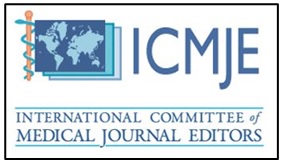Dysbiosis in the gut microbiota
Abstract
Dysbiosis is defined as the alteration in the composition of the gut microbiota, with a multifactorial origin; valued according to three types of modifications such as: the increase of pathobionts, decrease or loss of commensal microorganisms and loss of microbial diversity. These variants pose a problem for our health, weakening the immune system and disminishing the production of short-chain fatty acids, which seems to play an important role in the prevention of various pathologies. External elements such as genetics, age, environmental factors, diet, the use of antimicrobials, among others, can favor the establishment of dysbiosis. Therefore, the alteration of the balance of the microbiota translates into a disorder of health and, consequently, an increased risk in suffering from chronic diseases. In fact, the dysbiosis is associated with various disorders, including diabetes, obesity, different types of cancer, allergies, metabolic syndrome, inflammatory bowel disease, as well as neurological disorders. It seems that a good diet and lifestyle are essential for there to be a correct balance in the gut microbiota.
Downloads
Downloads
Published
How to Cite
Issue
Section
License
Usted es libre de:
- Compartir — copiar y redistribuir el material en cualquier medio o formato
- Adaptar — remezclar, transformar y construir a partir del material
- para cualquier propósito, incluso comercialmente.
Bajo los siguientes términos:
-
Atribución — Usted debe dar crédito de manera adecuada, brindar un enlace a la licencia, e indicar si se han realizado cambios. Puede hacerlo en cualquier forma razonable, pero no de forma tal que sugiera que usted o su uso tienen el apoyo de la licenciante.
- No hay restricciones adicionales — No puede aplicar términos legales ni medidas tecnológicas que restrinjan legalmente a otras a hacer cualquier uso permitido por la licencia.








